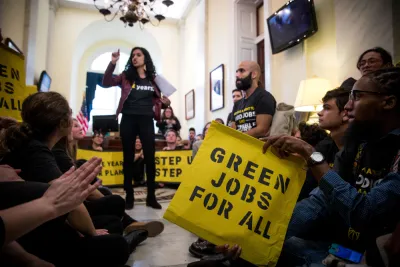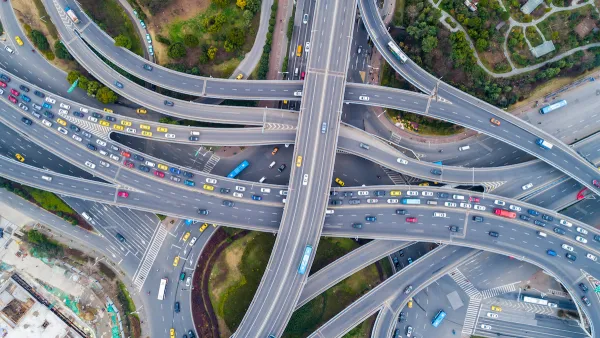Congressional Democrats hope transportation infrastructure can be a winning political point during a campaign year following the impeachment of President Donald Trump.

"House Democrats on Wednesday unveiled a $760 billion framework to fund infrastructure investments over five years in an effort to take their first steps on a top campaign priority," reports Cristina Marcos.
The framework falls short of a legislative action, according to Marcos, but the proposal is intended to set a "marker for a top legislative priority for the 2020 campaign…." Details remaining to work out, for instance, include how to fund the investments targeted in the framework.
"The Democrats' framework proposes $329 billion for roads and bridges, $55 billion for passenger rail, $30 billion for airport investments, $50.5 billion for wastewater infrastructure, $86 billion for expanding broadband access for rural areas, and $12 billion for a "next-generation" 911 system for emergency calls," according to Marcos.
A separate article by Tanya Snyder highlights the climate theme found in the proposal: House Transportation Chairman Peter DeFazio (D-Ore.) says the plan will be a radical departure from highway-focused transportation bills and will put clean energy and climate 'resilience' at the center."
"The climate plan, according to DeFazio, will include everything from making federal buildings carbon-neutral to transitioning to renewable fuels for aviation. He also wants to improve rail and transit options 'as a more efficient way to move passengers than short-haul airlines and automobiles' and use more climate-friendly building materials, like concrete with coal ash that 'actually absorbs carbon.'"
Snyder also contrasts this effort by Democrats to set a tone for the campaign to a five-year transportation bill reauthorization already working its way through the U.S. Senate. That bill mentions climate in the title—a first for a transportation bill reauthorization.
FULL STORY: House Democrats unveil $760B infrastructure plan

Analysis: Cybertruck Fatality Rate Far Exceeds That of Ford Pinto
The Tesla Cybertruck was recalled seven times last year.

National Parks Layoffs Will Cause Communities to Lose Billions
Thousands of essential park workers were laid off this week, just before the busy spring break season.

Retro-silient?: America’s First “Eco-burb,” The Woodlands Turns 50
A master-planned community north of Houston offers lessons on green infrastructure and resilient design, but falls short of its founder’s lofty affordability and walkability goals.

Test News Post 1
This is a summary

Analysis: Cybertruck Fatality Rate Far Exceeds That of Ford Pinto
The Tesla Cybertruck was recalled seven times last year.

Test News Headline 46
Test for the image on the front page.
Urban Design for Planners 1: Software Tools
This six-course series explores essential urban design concepts using open source software and equips planners with the tools they need to participate fully in the urban design process.
Planning for Universal Design
Learn the tools for implementing Universal Design in planning regulations.
EMC Planning Group, Inc.
Planetizen
Planetizen
Mpact (formerly Rail~Volution)
Great Falls Development Authority, Inc.
HUDs Office of Policy Development and Research
NYU Wagner Graduate School of Public Service




























